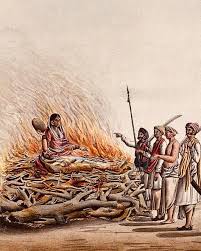Agartala: July 17: Journalists play a vital role in keeping the public informed. These professionals analyze current events and tell important stories on local, national and global levels.
Keep reading to discover how to become a journalist, including the education and skills you’ll need to succeed in this fast-paced, ever-evolving career.
Role and Responsibilities
Journalists investigate and report stories for newspapers, magazines, radio stations, television and online news outlets. Most of the time, journalists work for specific news organizations. Some work as independent freelancers, contributing to multiple outlets at a time.
Journalists’ responsibilities vary depending on their employers. Generally, journalists pitch story ideas and follow through on editors’ assignments. They also find and interview story sources. These interviews may inform written articles or be recorded for television, radio or web show broadcasts
Beyond interviewing sources and telling stories, some journalists are involved in story editing, presentation and broadcast. This is especially true for multimedia, TV and radio journalists. These journalists typically edit their own clips and create media packages for broadcast.
In most cases, becoming a journalist requires a formal education and plenty of on-the-job training. A journalism degree isn’t necessarily required, but it can help with building critical writing and interviewing skills and securing industry relationships early on.
Earn a Degree
Journalists usually earn a bachelor’s in journalism or a related field such as communications or English. Some go on to obtain a master’s in journalism or in a field concentration like broadcast or investigative reporting, but this isn’t required to gain a foothold in the field.
Gain Experience
Most colleges and universities offer opportunities for students to gain valuable journalism experience. As a college student, you might get involved in your student newspaper, radio station, TV station or magazine. You could also seek out internships at local papers and broadcast stations.
If you’re interested in entering a particular field of journalism, such as sports or the arts, make sure to attend and report on as many related events as possible. Doing so can help you develop a robust portfolio of clips to demonstrate your interest and skills in a specific niche.
Get an Entry-Level Job
After you graduate, it’s finally time to go out into the world and report. You can start by finding an entry-level job that builds on the skills you learned in college and prepares you to climb the ranks in your organization.
Several entry-level reporting jobs suit recent college graduates. A news assistant, for example, takes on clerical duties for editors, writers and other staff in a newsroom or broadcast station. News assistants collect and distribute communications and press releases and assist with research and reporting when needed.
You might also consider finding a job as a fact-checker. Fact-checkers are vital to upholding the credibility of news organizations. These workers evaluate the validity of facts portrayed in a story and confirm data, dates, historical information and identities.
Communication
Expert communication skills and sharp writing abilities are critical for success in journalism. A strong grasp on storytelling is especially important, whether you’re reporting for print, online, TV or radio organizations.
Dedication
Journalists should not be afraid to chase sources and dig deep to find answers. They need thick skin and a strong sense of dedication, especially if sources are hesitant to divulge information.
Endurance
The news never stops. Journalists should be prepared to chase after breaking stories as they occur and adhere to tight deadlines.
Familiarity With Technology
From cameras to microphones to video editing software, journalists require a firm understanding of the technology used every day to tell their stories.
Interpersonal Skills
The best stories include authentic, personal accounts from sources. Obtaining such accounts is only possible by creating genuine rapport with sources.

















